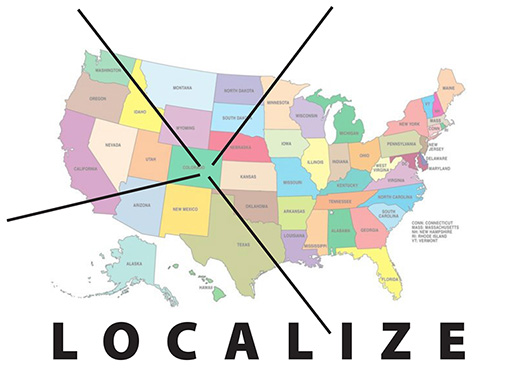Our 1990 state law was amended by HB20-1062, and the revised statute will become law 90 days after the 2020 legislative session adjourns. That date has been delayed due to the pandemic and suspension of the session, but the law, as you see it below, should be in effect for all or most of the 2020-21 school year. The changes will require each school district in Colorado to revise/update their student publications code (see subsection 4 of the law) to reflect modernized language regarding media platforms and added adviser protections.
CSMA and our partners can help with this, but Colorado is a local control state, and the most effective strategy to pursue changes in district policies is local. That means students and advisers and parents should be asking for the needed updates and should be involved in crafting the final language. School district legal personnel will certainly want to write the final language, but they will appreciate thoughtful ideas on how to proceed. Busy school personnel also appreciate working from a draft, as opposed to starting from scratch.
This project requires students to analyze the revised state law, to analyze the current school district publications policy, to write a suggested revised policy, and to meet with district personnel to support the process of revising policies. It combines citizenship, advocacy, clear writing, and persuasion (both written and oral). A best practice would be for all student media in a school district to confer and come to consensus on final suggested language.
Suggested steps (though each staff may differ on the details):
- Read and discuss the revised Colorado statute. This document, which shows the new language and contains some commentary, is a good place to start.
- Read and discuss the most current school district policy regarding student publications. Districts should make these available on their websites. Type ‘Colorado school district policies on student publications’ into a Google search to bring up a long list of state policies, which can be used as a starting point or for comparisons.
- Consider current policy language, which may or may not accurately reflect Colo. Rev. Stat. 22-1-120. in the past 30 years, some districts have added language that an analysis might find are not in accord with the law. Take note of discrepancies.
- Draft a revised district policy that accurately reflects the law, including the revisions signed into law on March 24, 2020.
- Create a committee of student leaders from all student media in the school district, perhaps working from a shared Drive document, to coordinate suggested language that can be supported when approaching the district for changes.
- Schedule a meeting, preferably in-person, to discuss the process involved in drafting the proposed publications policy revisions and specific language changes. Student representatives should be prepared to support suggested language.
- Follow through on the process, which should include school board passage of revised student code language.
This is a long-term process, but why not take advantage of the time we have now through summer to research, analyze, and write? And don’t forget: CSMA stands ready to support this effort in any way needed.
Colorado Student Free Expression Law
(Cite as: Colo. Rev. Stat. 22-1-120)
Section 22-1-120 — Rights of free expression for public school students
Became law June 7, 1990, amended March 24, 2020
(1) The general assembly declares that students of the public schools shall have the right to exercise freedom of speech and of the press, and no expression contained in a student publication, whether printed, broadcast, or online, and whether or not such publication is school-sponsored, is subject to prior restraint except for the types of expression described in subsection (3) of this section. An advisor may encourage expression which is consistent with high standards of English and journalism.
(2) If a publication written substantially by students is made generally available throughout a public school, it shall be a public forum for students of such school.
(3) Nothing in this section shall be interpreted to authorize the publication or distribution by students of the following:
(a) Expression which is obscene;
(b) Expression which is libelous, slanderous, or defamatory under state law;
(c) Expression which is false as to any person who is not a public figure or involved in a matter of public concern;
(d) Expression which creates a clear and present danger of the commission of unlawful acts, the violation of lawful school regulations, or the material and substantial disruption of the orderly operation of the school or which violates the rights of others to privacy.
(4) The board of education of each school district shall adopt a written publications code, which shall be consistent with the terms of this section and shall include reasonable provisions for the time, place, and manner of conducting free expression within the school district’s jurisdiction. Said publications code shall be distributed, posted, or otherwise made available to all students and teachers at the beginning of the 1991-92 school year and at the beginning of each school year thereafter.
(5) (a) Student editors of school sponsored student publications shall be responsible for determining the news, opinion, and advertising content of their publications subject to the limitations of this section. It shall be the responsibility of the publications advisor of school-sponsored student publications within each school to supervise the production of such publications and to teach and encourage free and responsible expression and professional standards for English and journalism.
(b) For the purposes of this section, “publications advisor” means a person whose duties include the supervision of school-sponsored student publications.
(6) If participation in a school-sponsored publication is part of a school class or activity for which grades or school credits are given, the provisions of this section shall not be interpreted to interfere with the authority of the publications advisor for such school-sponsored publications to establish or limit writing assignments for the students working with the publication and to otherwise direct and control the learning experience that the publication is intended to provide.
(7) No expression made by students in the exercise of freedom of speech or freedom of the press shall be deemed to be an expression of school policy, and no school district employee, or parent, or legal guardian, or official of such school district shall be held liable in any civil or criminal action for any expression made or published by students.
(8) Nothing in this section shall be construed to limit the promulgation or enforcement of unlawful school regulations designed to control gangs. For this purpose of this section, the definition of “gang” shall be the definition found in section 19-2-1111(2)(d)(II), C.R.S.
(9) A public school employee must not be dismissed, suspended, disciplined, reassigned, transferred, or otherwise retaliated against solely for acting to protect a student engaged in the conduct authorized pursuant to this section or for refusing to infringe upon conduct that is protected by this section of the First Amendment to the United States Constitution.




